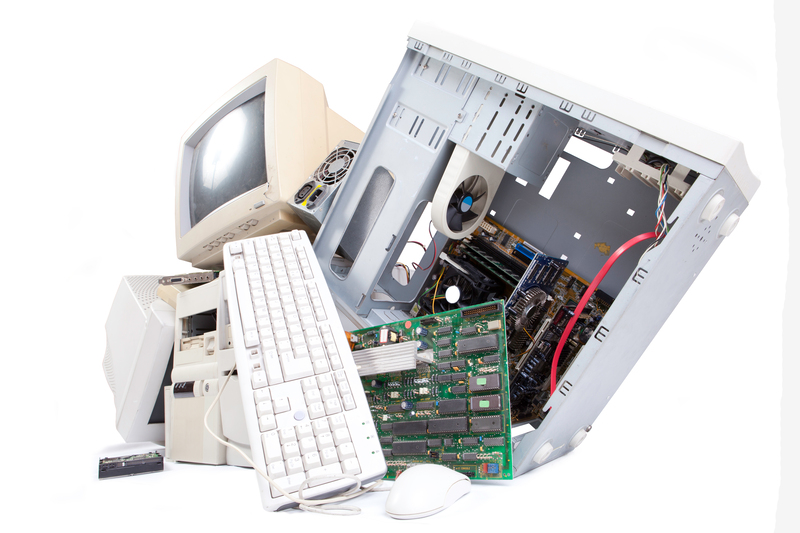Eco-Friendly Waste Management Solutions
Posted on 01/11/2024
Eco-friendly waste management has become an essential component of sustainable living. With the global population continuing to grow and urbanization on the rise, the volume of waste produced annually has reached alarming levels. Traditional waste disposal methods, such as landfills and incineration, not only consume valuable space but also contribute significantly to pollution and greenhouse gas emissions. Therefore, it is imperative to adopt eco-friendly waste management solutions to minimize environmental impact and promote sustainability.
Why Eco-Friendly Waste Management Matters
The importance of eco-friendly waste management cannot be overstated. Poor waste management practices can lead to the contamination of soil, water, and air, adversely affecting human health and biodiversity. By implementing eco-friendly strategies, we can reduce the negative impact on the environment and create a cleaner, safer planet for future generations. Moreover, sustainable waste management can also lead to economic benefits, including job creation and the development of new industries focused on recycling and resource recovery.

Key Eco-Friendly Waste Management Strategies
Reduce, Reuse, Recycle
The three Rs--reduce, reuse, and recycle--form the foundation of eco-friendly waste management. Reducing waste at the source involves minimizing the use of disposable items and opting for products with minimal packaging. Reusing materials extends their life cycle, reducing the need for new resources. Recycling involves converting waste materials into new products, thus conserving natural resources and reducing energy consumption.
Composting
Composting is a natural process that converts organic waste, such as food scraps and yard trimmings, into nutrient-rich compost. This compost can be used to enrich soil, promote plant growth, and reduce the need for chemical fertilizers. By diverting organic waste from landfills, composting also helps reduce methane emissions, a potent greenhouse gas.
Waste-to-Energy
Waste-to-energy (WTE) technologies involve the conversion of non-recyclable waste into usable forms of energy, such as electricity, heat, or fuel. This process not only reduces the volume of waste destined for landfills but also provides a sustainable energy source. Modern WTE facilities are designed to minimize emissions and comply with strict environmental regulations.
Extended Producer Responsibility (EPR)
Extended Producer Responsibility (EPR) is a policy approach that holds manufacturers accountable for the entire lifecycle of their products, including disposal. EPR incentivizes companies to design products that are easier to reuse, recycle, or safely dispose of. By shifting the responsibility from consumers to producers, EPR promotes sustainable product design and waste reduction.
Digital Waste Management Solutions
Advancements in technology have revolutionized waste management through the development of digital solutions. Smart waste bins equipped with sensors can monitor waste levels and optimize collection routes, reducing fuel consumption and emissions. Additionally, digital platforms can facilitate community engagement and education, encouraging responsible waste disposal practices.
Pros and Cons of Eco-Friendly Waste Management Solutions
Pros
1. Environmental Benefits: Reduces pollution, conserves natural resources, and mitigates climate change.
2. Economic Opportunities: Creates jobs and stimulates new industries focused on recycling and resource recovery.
3. Health Improvements: Minimizes contamination of soil, water, and air, leading to better public health.
4. Resource Efficiency: Promotes the efficient use of resources and reduces the need for raw materials.
Cons
1. Initial Costs: Implementing eco-friendly waste management systems can require significant upfront investment.
2. Technological Challenges: Advanced technologies may be expensive and difficult to adopt.
3. Public Resistance: Changing behavior and encouraging widespread adoption of sustainable practices can be challenging.
4. Infrastructure Requirements: Developing necessary infrastructure, such as recycling facilities and composting sites, can be resource-intensive.
Tips for Effective Eco-Friendly Waste Management
1. Educate and Raise Awareness: Informing the public about the importance of waste reduction and proper disposal practices is crucial.
2. Encourage Participation: Incentivize individuals and businesses to participate in recycling and composting programs.
3. Adopt Best Practices: Learn from successful waste management programs and implement best practices tailored to local conditions.
4. Invest in Technology: Utilize digital solutions and innovative technologies to optimize waste management operations.
5. Collaboration: Foster partnerships between government, industry, and communities to promote sustainable waste management.

Takeaways
Eco-friendly waste management involves a multifaceted approach that includes reducing, reusing, recycling, composting, waste-to-energy technologies, EPR, and leveraging digital solutions. While there are challenges to overcome, the benefits to the environment, economy, and public health are substantial. Collective action and continuous innovation are key to achieving sustainable waste management.
Conclusion
Eco-friendly waste management solutions are essential for mitigating the environmental impact of waste and promoting sustainability. By adopting a combination of reducing, reusing, and recycling, along with advanced technologies and policies like EPR, we can create a more sustainable future. Although there are challenges to implementation, the benefits far outweigh the drawbacks, making it imperative for individuals, businesses, and governments to work together and embrace sustainable waste management practices.

